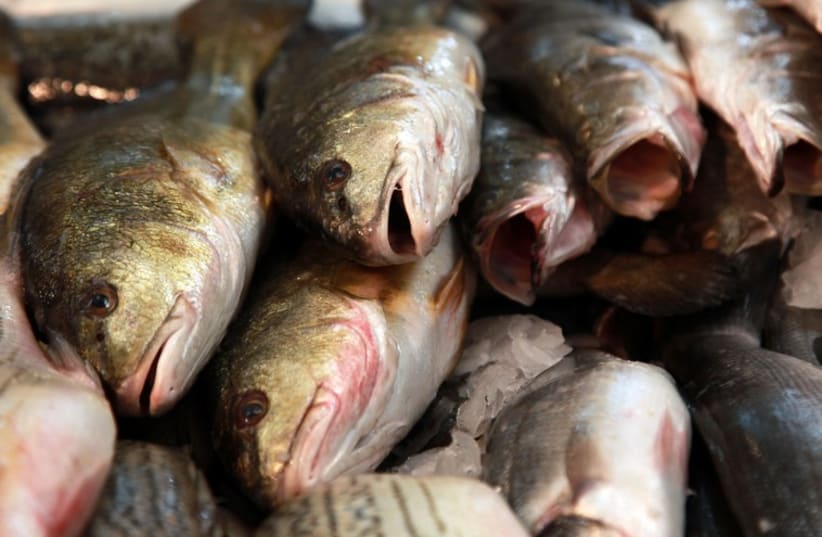The Nine Days begin on the first day of the Hebrew month of Av, nine days before the fast of Tisha Be'av (the ninth of Av).
During this period, many Jews and Israelis refrain from consuming meat, as part of a series of traditional mourning practices marking the time of year during which many tragedies occurred throughout Jewish history. Thus, alternative dishes such as fish become much more in demand during this time.
"The producers of frozen fish products that are ready for consumption are preparing ahead of time for this period, [by] increasing production and supply to retail chains," explained Inbal Trop Kirsch, vice president of marketing at "Ohf Tov" (Good Chicken), the manufacturer of "Dag Tov" (Good Fish) products.
"As part of the preparations for the Nine Days period, Ohf Tov has increased production of the series of 'Dag Tov' fish products and has even launched... 'Popcorn Dag Tov,' which are fish snacks coated in two styles."
In the Hebrew calendar, from the first day of the month of Av until the ninth day of the month, Jews traditionally take on a series of mourning practices, according to the Orthodox Union (OU). "As Av enters, we diminish our joy," declares the Talmud. Some only begin these practices from the Saturday night before Tisha Be'av, while others begin some practices three weeks beforehand.
Traditionally, Orthodox Jews avoid joyous and/or risky practices, including listening to music, getting haircuts, attending or holding weddings, eating meat and drinking wine, swimming, traveling for pleasure and buying new clothes.
On Tisha Be'av, which falls on Saturday night, August 10, Jews mark the day that the two Temples in Jerusalem were destroyed by fasting for 25 hours and abiding by other mourning practices, including sitting on the floor or low chairs and reciting the Book of Lamentations (Megillat Eicha), in which the prophet Jeremiah laments the destruction of Jerusalem and the subsequent exile.
Last year, frozen ready-to-eat fish products were valued at NIS 20 million, representing a 17% increase from the previous year. Although fish consumption is on the rise, it's still low compared to the rest of the world.
It is estimated that Israelis consume about 26.5 pounds (12 kg.) of fish per capita every year, while Western Europeans consume about 44 pounds (20 kg.) per capita, and Greece and Italy consume about 77 pounds (35 kg.) per capita. In comparison, Japan consumes about 143 pounds (65 kg.) per capita every year.
Some Jews will finish learning a tractate of Talmud during the Nine Days so that they can hold the festive meal (including meat) that traditionally accompanies the completion of tractates, according to the OU. Meat can also be eaten at the festive meal accompanying a circumcision.
